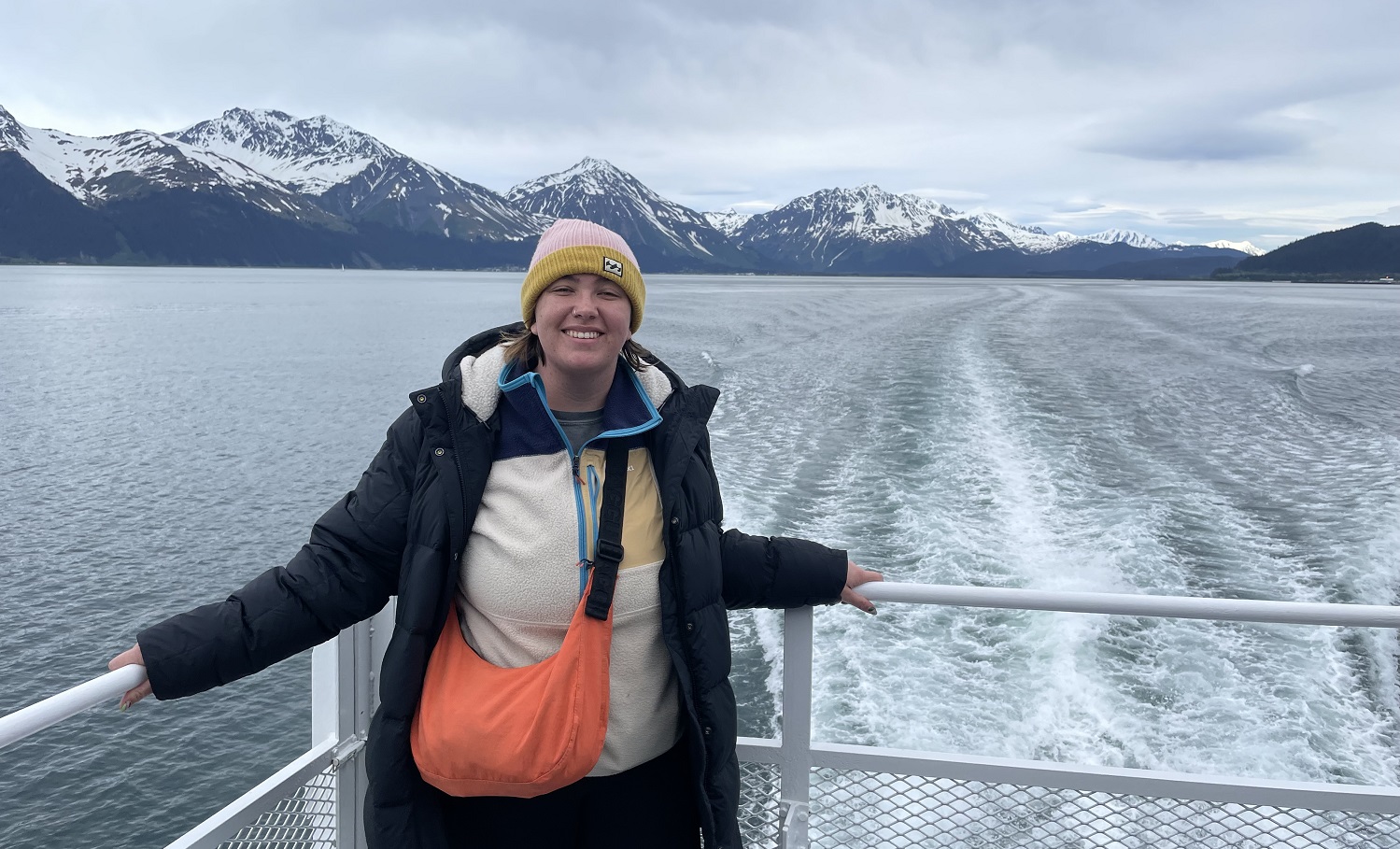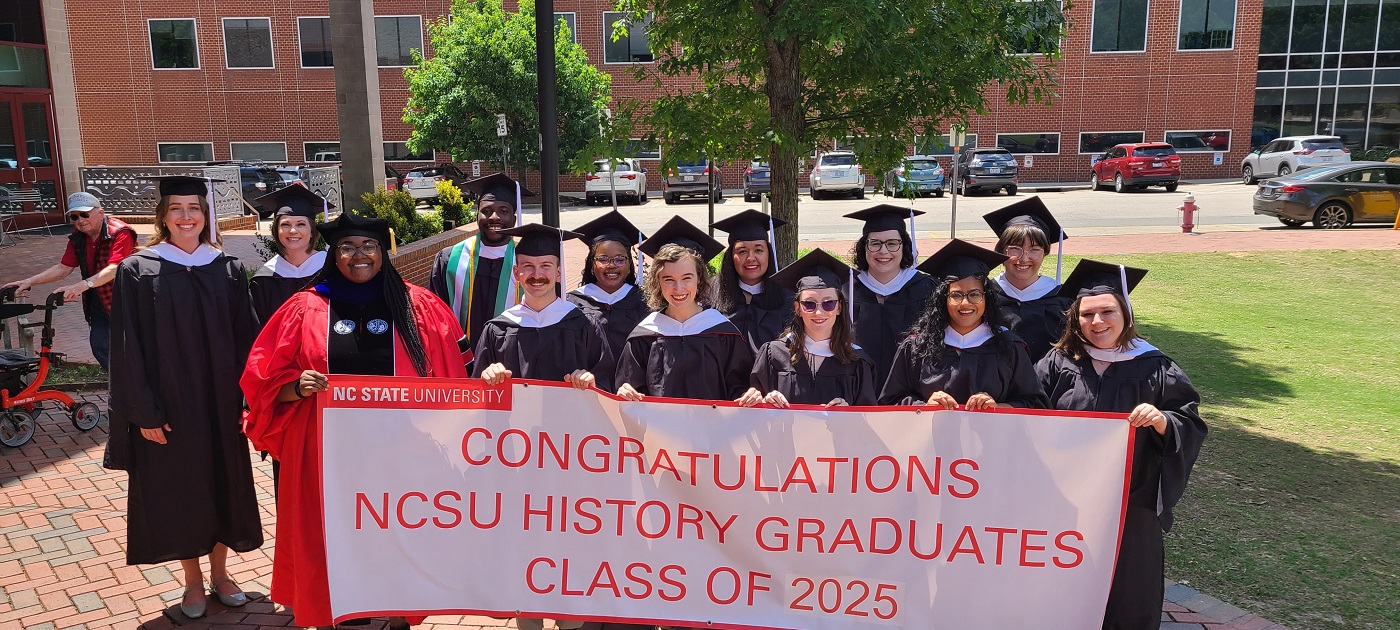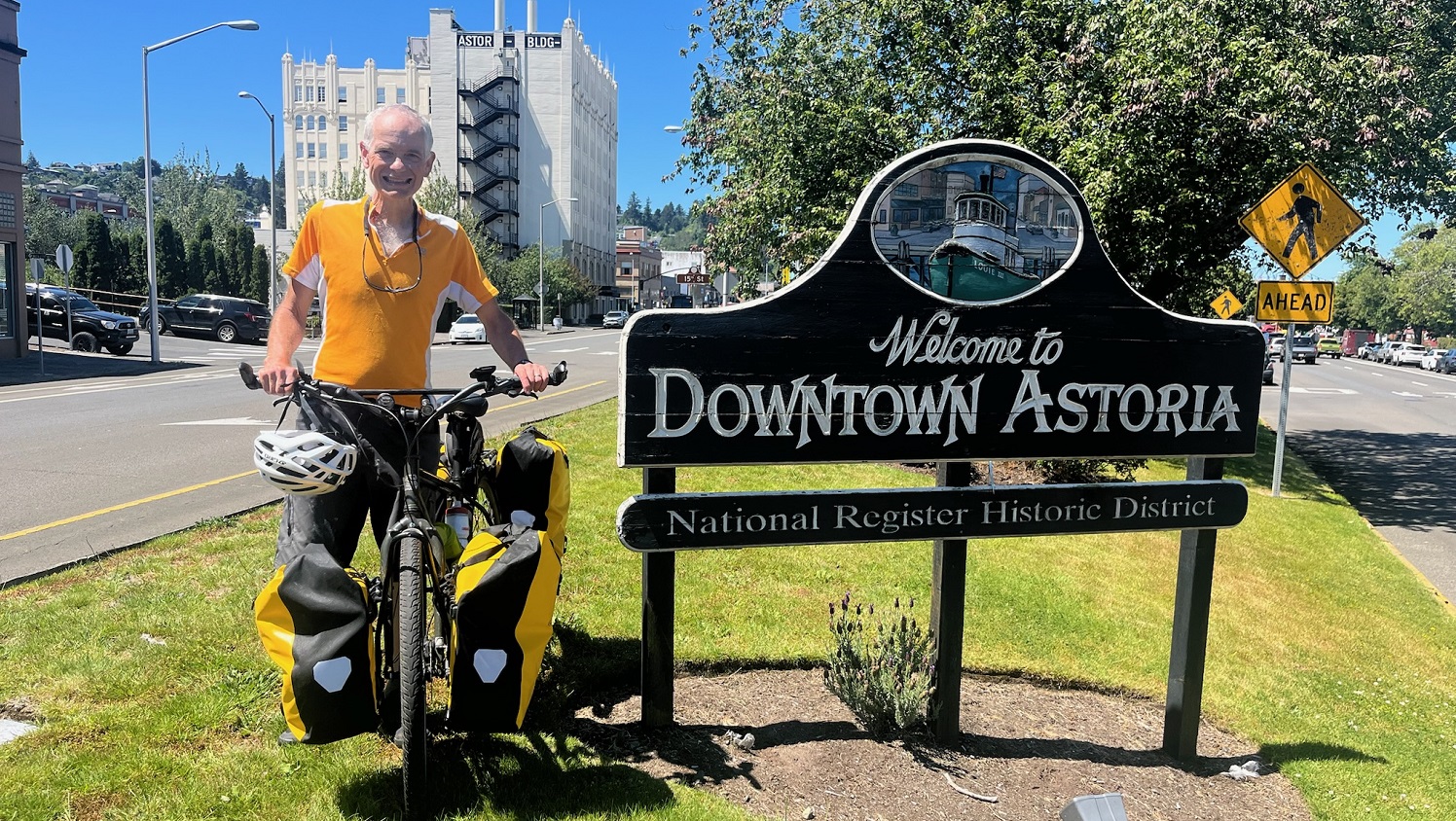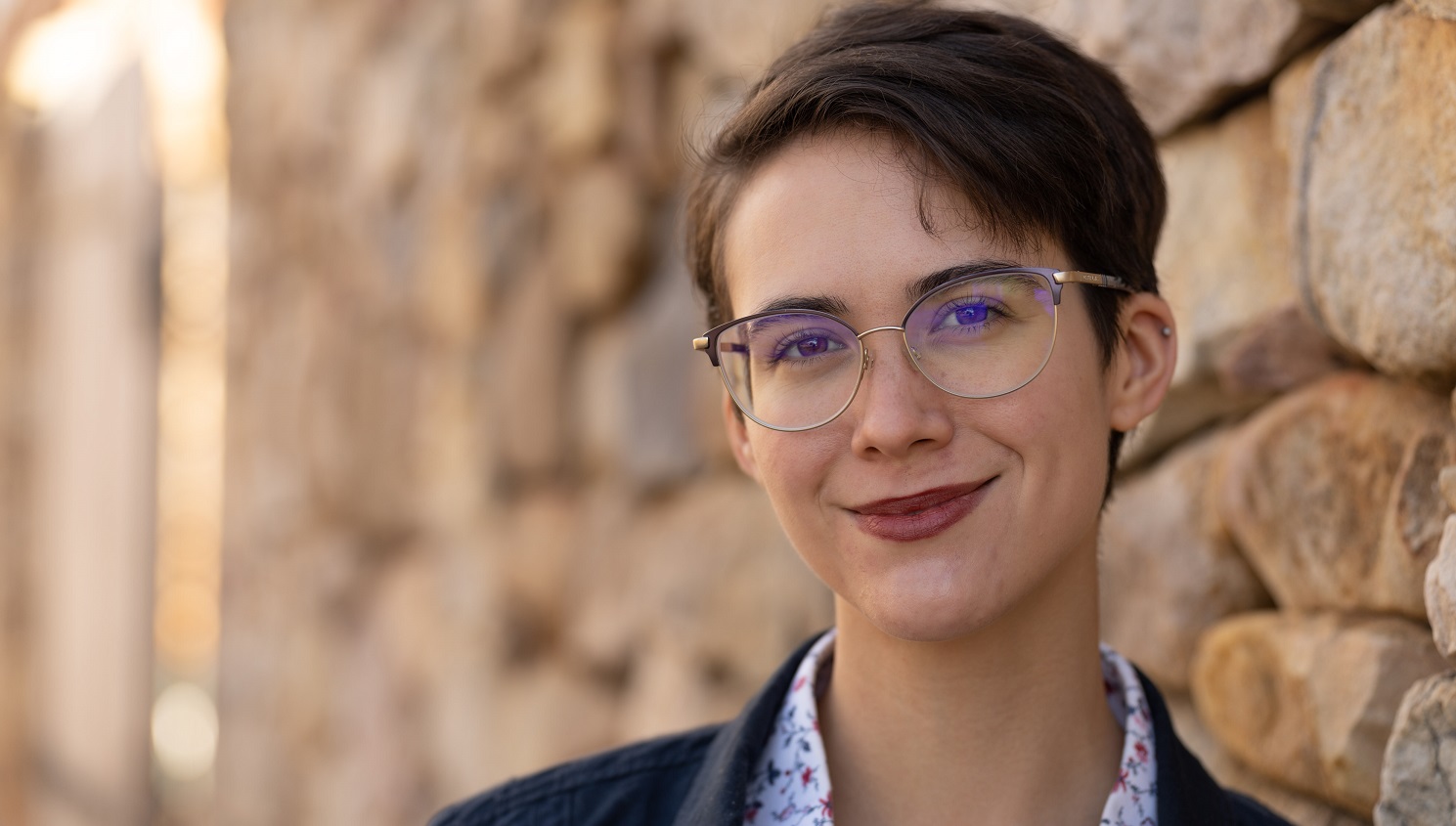Sawyer Castleberry-Backman is a second-year Public History MA student who has an ongoing internship with the National Park Service. She spent this past summer at their regional office in Anchorage, Alaska.
Tell me about your internship.
I was up in Anchorage, Alaska, working with the Cultural Resources Department of the National Park Service regional office. I worked on a database called Cultural Resources Inventory System (CRIS), and that internship is continuing today. I’m doing lots of research for them, condensing the data of that research and putting it into the database, which is then used by the Park Service, mainly for funding, but also for researchers as well.
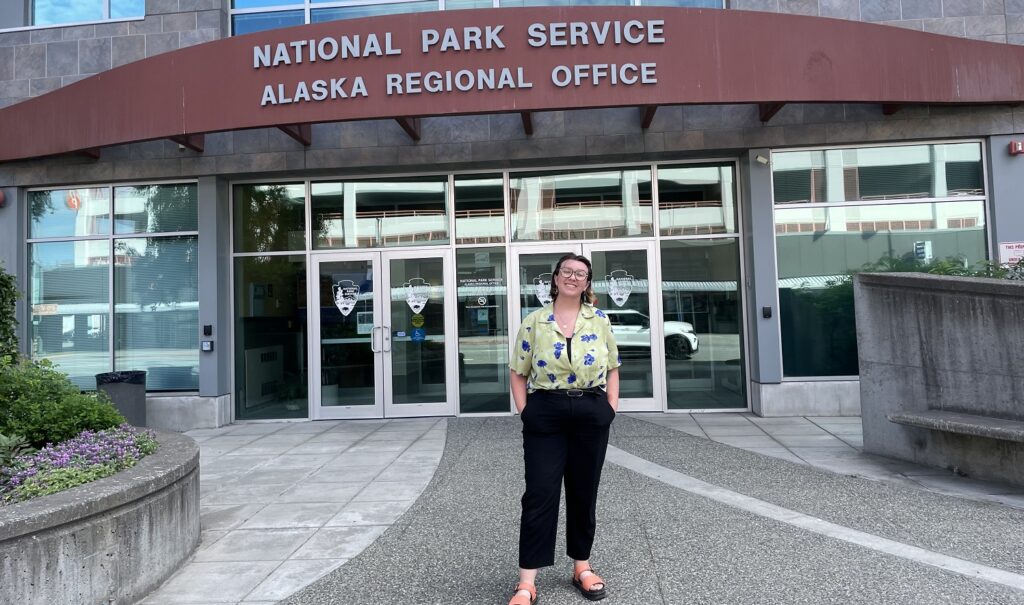
What is this inventory?
CRIS is four different databases that in 2018 they reduced into one. I was working on the ethnographic resources section of the database. Alaska works differently than the national parks in the Lower 48 because they allow subsistence-based hunting for traditionally associated groups. These people have ancestors who lived there at least 40 years before the parks were established. They have access to many of the parks for hunting and gathering of resources, which is legislated through a law that was established in the 1980s called Alaska National Interest Lands Conservation Act (ANILCA).
A big part of my job is looking at what these people are accessing within the parks, understanding why it’s important, and then putting that within the database. I also look at what places specifically in the park are important.
And how far does the research go back?
Our research is limited to within the last 20 years. Alaska Natives have been there for over 15,000 years, but our research needs to be from 2004.
Where are you finding all this information?
We have a lot of great resources within Alaska that focus on subsistence. The biggest one that I use is the Alaska Department of Fish and Game. They have an entire team of anthropologists who work with traditionally associated groups to study subsistence – looking at the numbers of things that are hunted within parks as well as outside of parks. I’ve been pulling a lot of Fish and Game’s massive documents as well as ethnographies of parks that show why things like salmon and moose are culturally important.
How are you able to still work on this now?
I was offered a position that continues my internship through the Great Basin Institute (GBI). My supervisors applied for funding through GBI to create my position at the Park Service. My internship was extended so I could continue to work remotely until that job is open. Mainly I’m doing independent research, and then I will write my entries and submit them online.
What made you choose this internship?
I applied only to national park based internships and this one was a National Council for Preservation Education (NCPE) internship. I heard about this NCPE internship through my dad, who goes to church with my supervisor. She mentioned that I might be interested and should apply.
My other supervisor, Jack Omelak, is the Native American Graves Protection and Repatriation Act (NAGPRA) coordinator for the state so I was learning a lot about NAGPRA – how national parks works with the native communities of Alaska to repatriate bodies and important artifacts.
Once you graduate in Spring, where will your new position be?
My position is fully remote, so I have some flexibility there. I am looking at moving up to Alaska, eventually, but I’ll have still have about 10 months of full time work once I graduate. I’m going to be applying to other things up in Alaska, seeing what I get and seeing what’s around in the area before I before I commit to the full move up there.
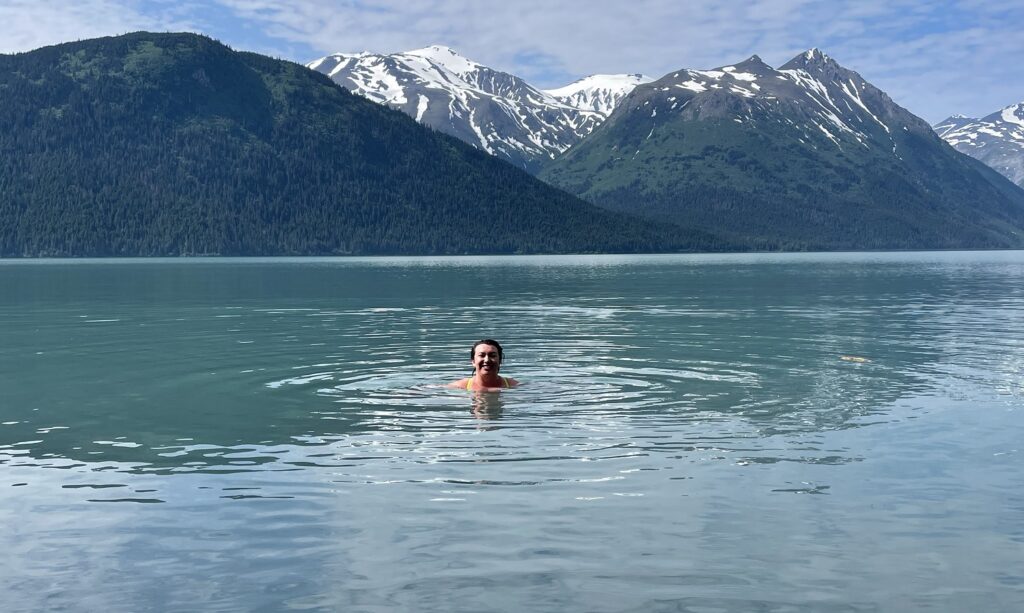
Where do you ultimately see yourself?
Careerwise, I’d love to just work for the National Park Service doing connection work between history and communities. My passion has always been working with stories that have been less told, and the National Park Service has a lot of that – including the story of the creation of the National Park Service. That story has been coming to light, and I think the National Park Service, especially in the past years, has been doing a really good job discussing their history and I want to be a part of that.
- Categories:
